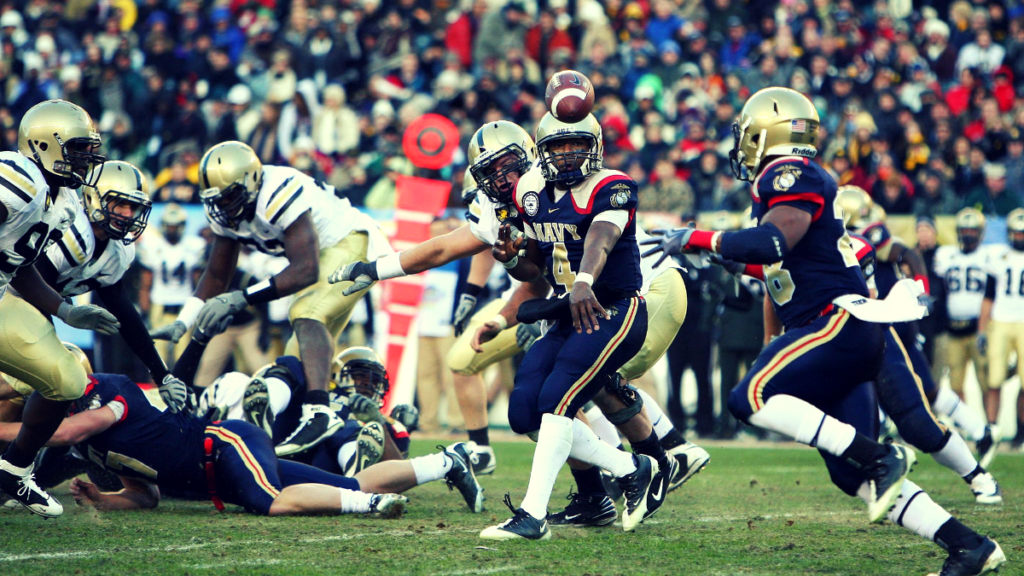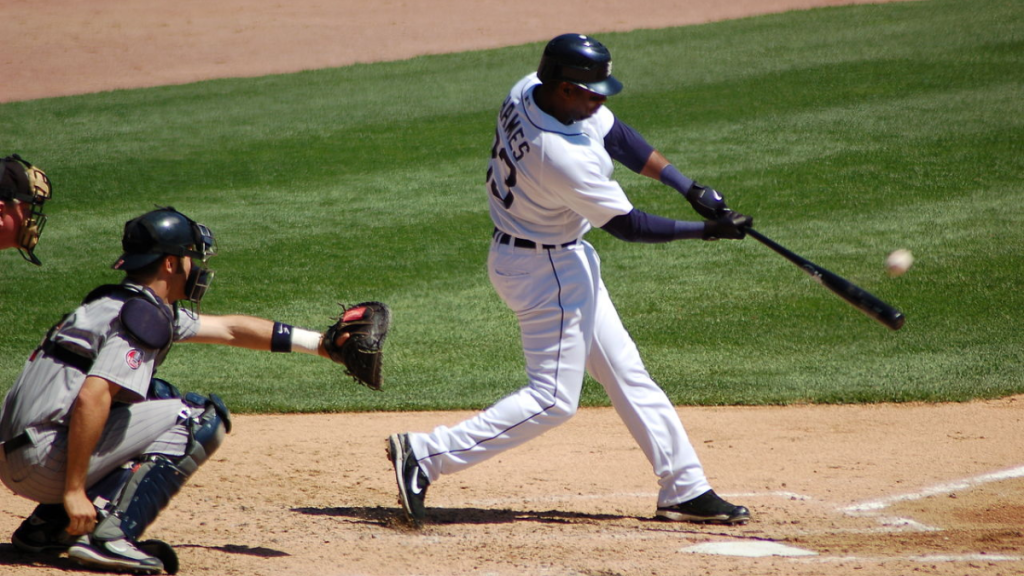
Matt Ryan
Assistant Professor of Economics
Duquesne University
Matt E. Ryan is an Associate Professor of Economics at Palumbo Donahue School of Business at Duquesne University. Professor Ryan has taught courses in Principles-level Micro- and Macroeconomics, Global Economics and International Economics. He also runs the Economic Research Colloquium.
Professor Ryan received his Ph.D in Economics from West Virginia University in 2009 and a B.A. in Economics from Claremont McKenna College in 2001.
Blog Posts

Will the Warriors win forever? The NBA's problem with team balance
August 31, 2017
|Uncategorized
Over the last several seasons, top-tier NBA players like LeBron James, Kevin Durant and Chris Paul appear to be self-selecting themselves onto teams with other top-tier players. These “superteams” might win a lot of championships, but are they going to ruin the sport for the rest of us? And is there any way to restore more balance to the NBA? The most striking evidence of this trend may be this: Last season, Russell Westbrook won the Most Valuable Player award while playing for the Oklahoma City Thunder. Of the eight Most Valuable Player awards handed out prior to last year, every

A minimum wage for pro baseball players?
July 6, 2017
|Uncategorized
Typically, we don’t consider professional athletes when determining the impact of a minimum wage, because we assume that their wages are far, far above the legislated minimum. For example, the highest paid Major League Baseball player, pitcher Clayton Kershaw of the Los Angeles Dodgers, will make $33 million this season, or approximately $1 million for every game he pitches. That’s about $10,000 per pitch, or about $500,000 per hour of actual in-game pitching.Kershaw is clearly an outlier, so let’s consider a Major League Baseball player earning the league minimum salary of $535,000. As the

What baseball betting teaches us about how markets deal with profit opportunities
May 10, 2017
|Basic Economics
Wouldn’t you love to know how the stock market is going to perform today? After all, if you knew with certainty how the market would move, you could effectively write yourself a check for any amount. Of course, knowing exactly what the market will do today is impossible. But it’s not for lack of trying. Enormous sums are poured into the effort to find a profitable investment strategy — and you can bet that if anyone discovers one, they aren’t in a hurry to publicize it. Which is why the publication of a profitable investment strategy in 2012 offers a unique opportunity to see how markets

Is your state’s income tax keeping star athletes away?
April 17, 2017
|The Fed & Monetary Policy
April is, of course, income tax month. Those taxes you’re dutifully calculating and filing may be painful to you personally, but chances are they’re having an even bigger impact on your favorite sports team. Now, any discussion of income taxes — or changes we could make to them for the sake of our sports teams — depends on understanding the reality of today’s income-tax system. Many opponents of any given income tax reform plan will argue that the reforms disproportionately favor the rich. But this complaint generally shows an underlying confusion over the nature of where tax revenues

Thinking through your March Madness bracket pool
March 10, 2017
|Basic Economics
The NCAA Men’s Basketball Tournament (hereafter “the tourney”) is an American institution. Conservative estimates place the number of Americans that fill out a NCAA Men’s Basketball Tournament bracket (hereafter “a bracket”) at 40 million. And most of these happen in bracket pools. So it’s time to address America’s most pressing annual question: What’s the best way to fill out your bracket so you can win your bracket pool? Now, obviously, you’d like to fill out your bracket such that you’ve got the greatest chance of your bracket being the best one in your pool. But notice

Weird election rules: The baseball hall of fame
February 18, 2017
|Democracy and Voting
Hillary Clinton won the popular vote. But Donald Trump won the Electoral College. What would happen if we got rid of the Electoral College? Or if we switched to proportional representation? It’s hard to predict with certainty how our political elections would look under different rules because the process of determining a president has been effectively unchanged over the last two centuries. Yes, there is considerable benefit to rule consistency. But in an empirical sense, it would be enlightening to have seen America’s voting rules change over time and the impacts of those changes on the process

The international currency playoffs
January 8, 2017
|The Fed & Monetary Policy
College football playoffs are just around the corner.[i] By why limit playoffs to sports? I now present to you the first International Currency Playoffs, to find the best currency of 2016. There are 32 national currencies in these playoffs, from the 32 largest economies in the world. The winner of each currency-to-currency matchup depends on their exchange rates from January 1 to December 20, 2016.[ii] Whichever currency rose against the other wins the match. You can see the results of the bracket here. Congrats to our champion, the Russian Ruble! The Ruble trounced its first-round opponent, the

Let’s replace the college football selection committee — with math.
December 6, 2016
|Basic Economics
College football season is nearing its annual conclusion, which means it’s time for everyone to become overly invested in the College Football Playoff. Every year, the 12-person selection committee sets out to choose the “four best teams” to compete for the College Football Playoff National Championship. (This year’s picks are #1: Alabama, #2: Clemson, #3: Ohio State, and #4: Washington.) The four teams are then paired off, and the two-stage playoff determines the champion. The committee’s selection process of the top four teams is, as even the committee itself admits “an art, not a

Can economics make baseball more fun for fans?
November 11, 2016
|Basic Economics
Sports are a terrific lens for focusing in on the process of decision-making — they’re almost laboratories for incentives. Consider the problem of instant replay in Major League Baseball. Instant replay lengthens the games, and longer games are arguably detrimental to baseball’s efforts as a whole. All else equal, a season of games with instant replay will take longer than a season without by the amount of time needed to review the plays. However, the likely larger time issue is the change in incentives that have resulted from the replay system itself. Delays now exist at the end of any sufficiently

The Case for Eliminating the Olympic Games
August 18, 2016
|Lobbying & Special Interests
Since the current process of allocating and producing an Olympic Games is fiscally unsustainable, it is worth exploring some alternative arrangements for hosting the world’s largest sporting event. Currently, the process of allocating an Olympic Games involves cities producing official bids that outline their plans for hosting the prospective games. These bids are culled over several rounds until a host city is selected—about seven years prior to the start of the Games. This particular allocation process predicts both escalating budgets as well as vote-buying; both of these outcomes occur with

Why I’m Excited About the Summer Olympics and Rio’s de Janeiro’s Financial Crisis
August 14, 2016
|Lobbying & Special Interests
At the risk of sound glib, I believe the quadrennial fervor over the Summer Olympics is at least partially a function of the seemingly timeless nature of the competition. Set against the backdrop of the financial crisis in Rio de Janeiro, however, the games have become far more interesting, albeit tragic. Sprinters this year will run the same 100 and 200 meter events that Jesse Owens ran in Berlin in 1936—though not under the specter of world warfare. Boxers are competing on the same stage that Cassius Clay did in Rome in 1960—though perhaps with a different set of crooked judges depending
Liberty, delivered to your inbox!
Want to know more about Student For Liberty’s impact, new initiatives, and other efforts made to advance liberty around the world?
Sign up for our email newsletter to stay connected.
Subscribe Now

